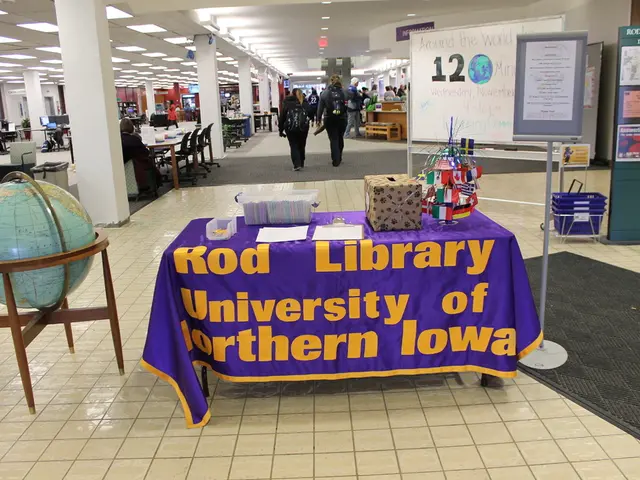Forest renewal initiative invigorates prospects for forest-dependent lifestyles
In the heart of Vietnam, Gia Lai Province is embarking on a significant transformation in its forestry sector. The Sustainable Forest Management (SFM) project, a collaborative effort between Vietnam and Germany, is reshaping forest management towards sustainable, climate-smart, and economically beneficial timber production.
The project, spanning from 2022 to 2025, aims to transition forest management from short-term, low-value plantation cycles to long-cycle, high-quality timber production. This shift not only enhances income for local communities but also fosters biodiversity protection and aligns with Vietnam’s climate goals.
Forestry companies like Sông Kôn and Quy Nhơn Forestry are at the forefront of this change. They are piloting long-cycle forest models focused on valuable native trees such as acacia and green lim, expanding from initial demonstration areas of 48 hectares to over 1,685 hectares. These long-term forests not only store more carbon but also create potential for carbon credit generation, integrating the forest sector into global climate carbon markets while diversifying income sources.
Local communities are reaping the benefits through improved and stable incomes. Households are directly involved in forest management under transparent legal contracts that define responsibilities and foster cooperation between forestry companies and residents.
Technology plays a crucial role in this transformation. Unmanned aerial vehicles (UAVs) equipped with multispectral cameras are being used for faster, more accurate forest monitoring, improving detection of illegal logging and reducing costs.
The project envisions sustainable forest ecosystems that contribute to Vietnam’s net zero emission goals by 2050. It aims to professionalize forest protection by integrating remote sensing technology and enhancing community forest protection forces with training, resources, and legal frameworks to prevent encroachment and degradation.
The overall sector goal is to elevate sustainable, certified wood production, reduce dependency on imports, and increase forestry export value. Gia Lai is poised to become a key timber capital in Vietnam.
The shift towards developing large timber forests and implementing sustainable forest management aligns well with Gia Lai's long-term forestry strategy. Sông Kôn Forestry Co., Ltd. has adopted advanced silviculture techniques and an integrated forestry model, aiming to generate income at different stages of forest growth while improving biodiversity, resilience, and long-term value.
The SFM project aims to reshape Vietnam's forestry sector by promoting long-cycle, high-quality timber forests that generate more income, protect biodiversity, and contribute to the country's climate goals. In Gia Lai alone, forestry companies such as Quy Nhơn Forestry Co., Ltd. and Sông Kôn Forestry Co., Ltd. have received technical and financial support to pilot long-cycle forest models and train local workers in modern silvicultural practices.
Integrating forest development with carbon credit markets presents a major opportunity for Gia Lai Province and local communities to participate more deeply in forest-based value chains. Although Vietnam is Southeast Asia's largest exporter of wood products, much of the timber comes from short-cycle plantations producing wood chips, an increasingly unsustainable economic model.
The project aligns with Vietnam's climate commitments, as forests can act as natural carbon sinks and contribute to the country's pledge to reach net-zero emissions by 2050.
A shining example of the project's impact is the story of Nguyễn Thị Loan, a resident of Bình Hiệp Commune in Gia Lai Province. Before joining the SFM project, she could barely make ends meet due to low income from planting medicinal herbs and low-quality acacia trees. Now, she earns VNĐ300,000-400,000 (US$11.4-15.3) each day tending forest land as part of the SFM project.
As the SFM project continues to unfold, it promises a sustainable future for Vietnam's forestry sector, one that balances economic growth with environmental protection and social inclusion.
- The AI-driven multispectral cameras on the UAVs used for forest monitoring in Gia Lai Province are a testament to the crucial role technology plays in the transformation of the local forestry sector.
- The Sustainable Forest Management (SFM) project is not just about timber production, but also about integrating the forestry industry with global climate carbon markets for carbon credit generation.
- The economy of Gia Lai Province is set to benefit significantly from the SFM project, with forestry expected to become a key contributor to the region's export value and a potential timber capital in Vietnam.
- The SFM project's long-term forest management models have the potential to create a more resilient environmental-science approach that aligns with Vietnam's commitment to reach net-zero emissions by 2050.
- The shift from short-term, low-value plantation cycles to long-cycle, high-quality timber production under the SFM project provides a more lucrative lifestyle for local communities, as shown by Nguyễn Thị Loan's income increase from tending forest land.
- The health-and-wellness of residents like Nguyễn Thị Loan is improved through collaborations like the SFM project, as it provides stable and higher-yielding alternatives to unsustainable farming practices.
- Sustainable forest management (SFM) project in Gia Lai Province encourages the use of modern silvicultural practices, fostering a culture of innovation and professionalism in the forestry sector.
- The home-and-garden of Gia Lai's communities are set to become more sustainable, with the project focusing on biodiversity protection, climate-smart practices, and community empowerment.
- The SFM project's focus on climate-change mitigation strategies is a significant step toward global efforts in reducing greenhouse gas emissions and supporting the United Nations Sustainable Development Goal 13.
- The integration of remote sensing technology and community forest protection forces under the SFM project is a model for public-private partnerships (PPP) in the finance sector, demonstrating the potential for collaborative efforts to drive economic growth while preserving the environment.







